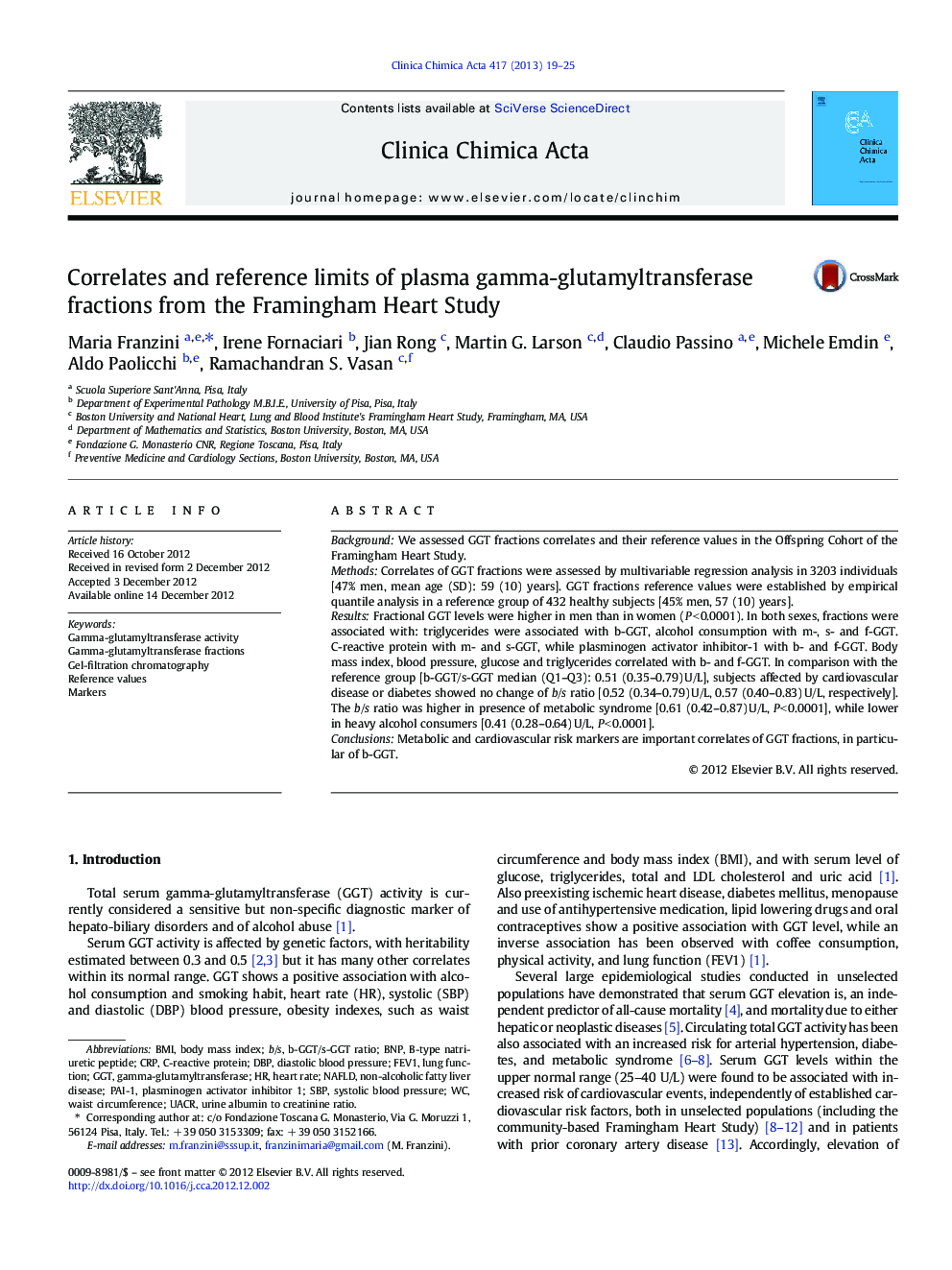| Article ID | Journal | Published Year | Pages | File Type |
|---|---|---|---|---|
| 1965798 | Clinica Chimica Acta | 2013 | 7 Pages |
BackgroundWe assessed GGT fractions correlates and their reference values in the Offspring Cohort of the Framingham Heart Study.MethodsCorrelates of GGT fractions were assessed by multivariable regression analysis in 3203 individuals [47% men, mean age (SD): 59 (10) years]. GGT fractions reference values were established by empirical quantile analysis in a reference group of 432 healthy subjects [45% men, 57 (10) years].ResultsFractional GGT levels were higher in men than in women (P < 0.0001). In both sexes, fractions were associated with: triglycerides were associated with b-GGT, alcohol consumption with m-, s- and f-GGT. C-reactive protein with m- and s-GGT, while plasminogen activator inhibitor-1 with b- and f-GGT. Body mass index, blood pressure, glucose and triglycerides correlated with b- and f-GGT. In comparison with the reference group [b-GGT/s-GGT median (Q1–Q3): 0.51 (0.35–0.79) U/L], subjects affected by cardiovascular disease or diabetes showed no change of b/s ratio [0.52 (0.34–0.79) U/L, 0.57 (0.40–0.83) U/L, respectively]. The b/s ratio was higher in presence of metabolic syndrome [0.61 (0.42–0.87) U/L, P < 0.0001], while lower in heavy alcohol consumers [0.41 (0.28–0.64) U/L, P < 0.0001].ConclusionsMetabolic and cardiovascular risk markers are important correlates of GGT fractions, in particular of b-GGT.
► GGT fractions correlates were assessed in the Framingham Heart Study ► Cardiovascular risk factors were mainly associated with b-GGT fraction. ► Alcohol consumption was associated mainly with m-, s- and f-GGT. ► b/s ratio was higher in presence of metabolic syndrome and lower in alcoholics.
